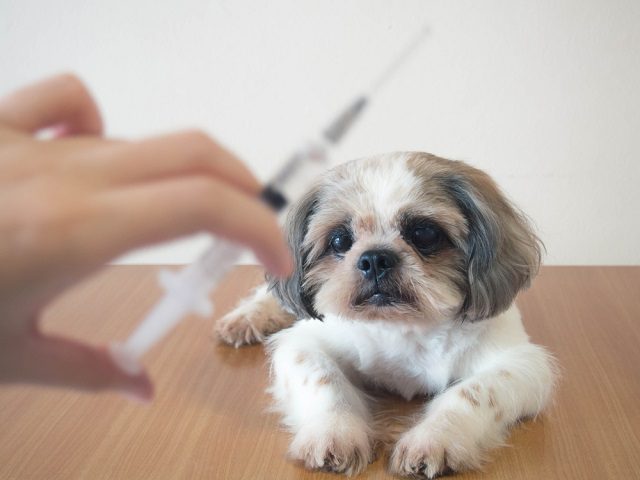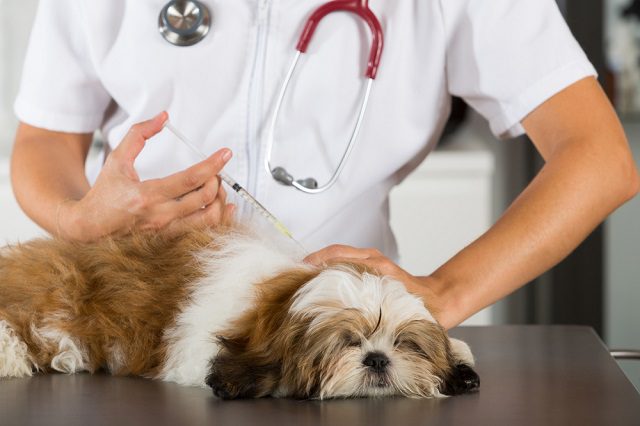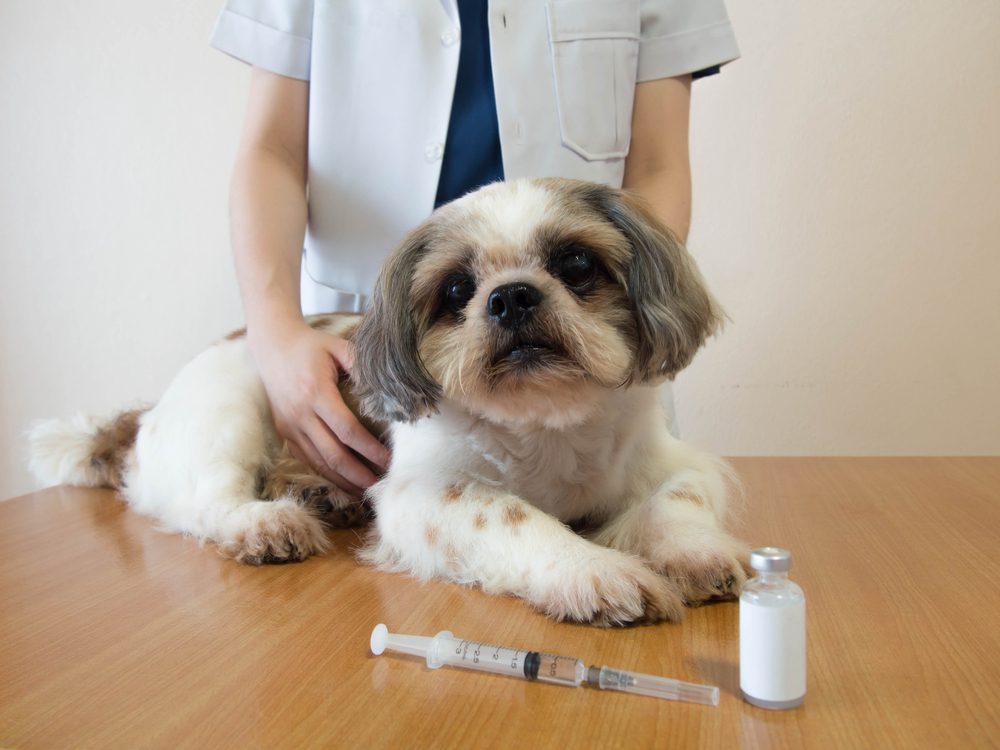How Many Vaccines Do Shih Tzu Need
How Many Vaccines Do Shih Tzu Need? Keeping your furry friend healthy and happy is your top priority as a Shih Tzu parent. Protecting your pup’s vitality is vital to protecting it against potential health threats with essential vaccines.
As cute as your Shih Tzu is, he is not immune from many canine diseases that could jeopardize his health. But there’s no need to be overwhelmed – you’ve come to the right place. Whether you’re a new Shih Tzu parent or a seasoned one looking for more knowledge, this article provides a comprehensive and easy-to-understand rundown of the crucial vaccines your little fur baby needs.
From Core to non-core vaccines, we unravel the mystery behind each one, their importance, and the protection they offer. Read on and equip yourself with the knowledge to make informed decisions about your beloved Shih Tzu’s health. After all, prevention is better than cure, especially for our furry family members!
Essential Vaccines for Shih Tzu Puppies
The Role of Vaccination in Early Health Protection
From the moment they’re born, Shih Tzu puppies are vulnerable to several health risks. The mother’s milk is the first line of defense against these threats, which provides antibodies to protect the newborns. However, as the puppies grow and are weaned off their mother’s milk, they become susceptible to various diseases. This is where the essential vaccines come in.
Puppy Protection
Parvovirus, distemper, adenovirus, and parainfluenza are the primary diseases that the vaccines aim to prevent. These diseases can severely affect your puppy’s health, leading to discomfort, organ damage, and even death in severe cases. Hence, these vaccines called the ‘core vaccines,’ are administered to all puppies, regardless of their lifestyle or location.
The Crucial Timing of Shih Tzu Puppy Vaccinations
The first round of vaccinations usually starts when the puppy is six to eight weeks old. This is followed by booster shots every two to three weeks until the puppy is around 16 weeks old. Following this schedule closely is essential to ensure your pup’s immune system develops appropriately and can fight off these diseases effectively.

Scheduling Your Shih Tzu’s Vaccinations
A well-planned vaccination schedule is vital to keeping your Shih Tzu healthy. This schedule should start from puppyhood and continue throughout your dog’s life. Your vet typically provides a vaccination schedule based on your dog’s age, lifestyle, and overall health status.
The initial vaccination schedule for puppies usually starts at around six to eight weeks, with booster shots every two to three weeks until they’re about 16 weeks old. After this, booster shots for core vaccines are typically given every one to three years.
For non-core vaccines, the schedule depends on your dog’s risk factors. For example, the Bordetella vaccine is usually given annually, but if your dog is at high risk, it may be administered every six months. Always consult your vet to determine the best vaccination schedule for your Shih Tzu.

Core Vaccines for Adult Shih Tzus
Once your Shih Tzu transitions from a puppy to an adult, they will still require regular vaccinations to maintain their health. Core vaccines for adult Shih Tzus include the DHLPP combo and the Rabies vaccine.
The DHLPP combo needs to be boosted every three years. This is to ensure that your Shih Tzu maintains immunity against these diseases throughout their adult life. Rabies shots, on the other hand, may be given annually or every three years, depending on the specific vaccine used and the laws in your locality.
Just like human babies, puppies receive vaccines during their first few months. However, the need for vaccinations doesn’t end with puppyhood. Adult Shih Tzus also require regular vaccinations to keep them healthy.
In addition to these core vaccines, your vet may recommend other vaccines based on your Shih Tzu’s lifestyle and risk factors. For example, if your dog spends much time outdoors, the Leptospirosis vaccine may be suggested. This vaccine protects against a bacterial disease contracted from wildlife or through contact with contaminated water.
Non-core Vaccines: Are They Necessary for Your Shih Tzu?
Apart from the core vaccines, several non-core vaccines are available for dogs. These include vaccines for Bordetella (Kennel Cough), Lyme disease, and Canine Influenza. Whether your Shih Tzu needs these vaccines depends mainly on his lifestyle and risk factors.
For instance, the Bordetella vaccine may be necessary if your Shih Tzu frequents dog parks, doggy daycare, or boarding facilities. This vaccine protects against a highly contagious respiratory disease called ‘Kennel Cough.’ Similarly, the Lyme disease vaccine may be recommended if your dog spends much time outdoors, especially in areas with a high tick population.
Discussing these non-core vaccines with your vet is essential to assess whether your Shih Tzu could benefit from them. Each dog is unique, and their lifestyle and environment significantly determine their risk levels.
What to Expect After Your Shih Tzu Gets Vaccinated
After your Shih Tzu gets vaccinated, it’s normal to see some mild side effects. These may include slight discomfort at the injection site, mild fever, reduced appetite, or lethargy. These side effects usually resolve within a day or two.
If your Shih Tzu seems uncomfortable or the side effects persist over a few days, it’s best to consult your vet. They can advise how to make your dog more comfortable and assess whether a visit to the clinic is necessary.

Keeping Your Shih Tzu Healthy
Vaccinations are crucial to your Shih Tzu’s health but are not the only aspect to consider. Regular vet check-ups, a balanced diet, exercise, and good dental hygiene are other crucial factors in maintaining your Shih Tzu’s overall health.
Regular vet check-ups can help detect potential health issues early, making them easier to manage. A balanced diet ensures your Shih Tzu gets the nutrients for growth and energy. Regular exercise helps maintain a healthy weight and strengthens your dog’s heart and muscles. Lastly, good dental hygiene can prevent diseases leading to other serious health problems.
In addition to these, regular grooming is essential for Shih Tzus, given their long and dense coat. Regular brushing can prevent matting and skin conditions, while regular baths keep your dog clean and free from parasites.
Risks and Side Effects of Vaccinations
Balancing Act
While vaccines are essential for your Shih Tzu’s health, they are not without risks. Vaccines stimulate the immune system, sometimes leading to side effects. These side effects are usually mild and short-lived, including a slight fever, reduced appetite, and lethargy.
Vaccine Safety
In rare cases, vaccines can cause more severe side effects, such as allergic reactions. Symptoms of an allergic reaction may include facial swelling, vomiting, difficulty breathing, or collapse. See veterinary attention immediately if you observe these symptoms after your Shih Tzu gets vaccinated.
However, it’s important to note that the benefits of vaccinations far outweigh the risks. The diseases that vaccines prevent can be much more severe and potentially life-threatening.
Final Thoughts: How Many Vaccines Do Shih Tzu Need
Vaccinations are crucial to your Shih Tzu’s healthcare regimen. They protect against various potentially serious diseases, helping to ensure your furry friend lives a long, healthy, and happy life.
While vaccinations are essential, they’re not the only aspect of your Shih Tzu’s health care. Regular vet visits, a balanced diet, exercise, good grooming habits, and a loving home environment are all equally important for your Shih Tzu’s well-being. You can look forward to many wonderful years with your loyal and adorable Shih Tzu by ensuring these elements.







